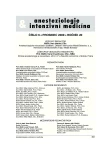-
Medical journals
- Career
Ethical problems experienced during emergency medical care provision
Authors: Pokorný Jiří sen.
Published in: Anest. intenziv. Med., 20, 2009, č. 6, s. 332-334
Category: Ethics
Overview
The article starts with a definition of ethics and classification of emergency medical care. The ethics view of the problems of care of single and mass casualties is described. A major ethical problem is posed by the cases of critically ill patients in whom intensive therapy has proved to be inefficient and futile. In those cases transition from intensive to symptomatic care is indicated because the patient has entered the phase of dying. Such a decision has to be made by the lead physician in agreement with other physicians caring for the patient. The implementation of guidelines for the transition from intensive to symptomatic care is recommended. The death of the patient should be the consequence of their untreatable disease, not a medical intervention. One of the physician’s responsibilities is also ensuring a quiet environment for the patient dying from a non-treatable condition.
Keywords:
ethics – intensive care – dying
Sources
1. Příhoda, P. Eutanazie – sporné téma příštích let. Přítomnost, 2001, s. 48–49.
2. Koutecký, J. Sborník Spondeo ac polliceor. Praha: Triton 2003.
3. Pohůnková, D. Ochrana lidských práv a důstojnosti smrtelně nemocných a umírajících. Dokument Rady Evropy č. 1418/1999/1., Zdravotnické noviny 48, 1999, č. 43, s. 13.
4. Metodická opatření ministerstva zdravotnictví ČSR: č. 32 Zásady poskytování diferencované péče, č. 33 Zásady organizace a poskytování první pomoci, č. 34. Zásady organizace služby rychlé zdravotnické pomoci, č. 35. Koncepce oboru anesteziologie a resuscitace. Věstník MZd ČSR 1974.
5. Sundnes, K. O., Birnbaum, M. L. Health Disaster Management.Guidelines for Evaluation and Research in the Utstein Style. Prehospital and Disaster Medicíně, 2003, 17, suppl. 3.
6. Cvachovec, K. Máme bránit utrpení. Lidové noviny 19. 11. 2007.
7. Drábková, J. Etika, komunikace, diverzita, konflikty v intenzivní medicíně. Ref. výběr z ARIM, Suplementum 1/2008, s. 15.
8. Munzarová, M. Řádné a mimořádné prostředky ve světle respektu k rozhodování nemocného. Prakt. Lék., 2000, 80, č. 1, s. 45–47.
9. Munzarová, M. Etická doporučení k péči o smrtelně nemocné a umírající. Prakt. Lék., 2000, 80, č. 10, s. 550–552.
10. Munzarová, M. K současným diskusím o tzv. zbytečnosti léčby. Anest. Neodklad. Péče, 11, 2000, Supl. 1, s. 7–10.
11. Pařízková, R., Černý, V., Dostál, P. Odnětí ventilační podpory pacientům v intenzivní péči. Čas. Lék. čes., 2003;142, 7, s. 398–402.
12. Pokorný Jan – osobní sdělení 3. 6. 2008.
Labels
Anaesthesiology, Resuscitation and Inten Intensive Care Medicine
Article was published inAnaesthesiology and Intensive Care Medicine

2009 Issue 6-
All articles in this issue
- Transcatheter Aortic Valve Implantation: The anaesthetist’s view
- Continuous infusion versus intermittent administration of vancomycin in critically ill patients with Gram-positive infections resistant to beta-lactam antibiotics
- Prognostic factors of community-acquired purulent meningitis outcome in adults
- Bleeding complications and overdosing of anticoagulant therapy
- Ethical problems experienced during emergency medical care provision
- Prim. MUDr. Jiří Dostál
- The development of intensive care medicine in Israel from its creation until today
- Anaesthesiology and Intensive Care Medicine
- Journal archive
- Current issue
- Online only
- About the journal
Most read in this issue- Bleeding complications and overdosing of anticoagulant therapy
- Ethical problems experienced during emergency medical care provision
- Continuous infusion versus intermittent administration of vancomycin in critically ill patients with Gram-positive infections resistant to beta-lactam antibiotics
- Prim. MUDr. Jiří Dostál
Login#ADS_BOTTOM_SCRIPTS#Forgotten passwordEnter the email address that you registered with. We will send you instructions on how to set a new password.
- Career

